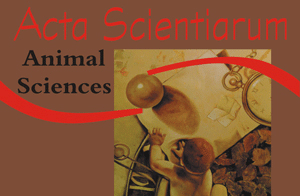The objective of this experiment was to study the foraging behavior of Africanized honey bees Apis mellifera throughout the year. The collections of material were made in the experimental area at the Centro Universitário Moura Lacerda, Ribeirão Preto, São Paulo State. Once a month, for twelve months, an assessment was made of the collection of bees, by recording the number of bees entering the hive carrying pollen or nectar, from 7:00 a.m. to 6:00 p.m., 10 minutes each time, with five replications each month. Africanized honey bees A. mellifera collected nectar throughout the day, increasing the frequency until 12:00 p.m., while preferring the morning for pollen, until 11:00 a.m. It was concluded that there was no significant difference either in the collection of nectar or pollen throughout the year, but the month in which the bees collected the most and least nectar were February 2008 and July 2007, respectively; for pollen, March 2008 and September 2007, respectively. The minimum temperature for the start of the collection was 12.42ºC. The low relative humidity was a limiting factor for the collection of nectar, and should be at least above 40%. This bee preferred collecting nectar (78.42%) to pollen (21.58%).
Apis mellifera; climatic factors; foraging; nectar; pollen
